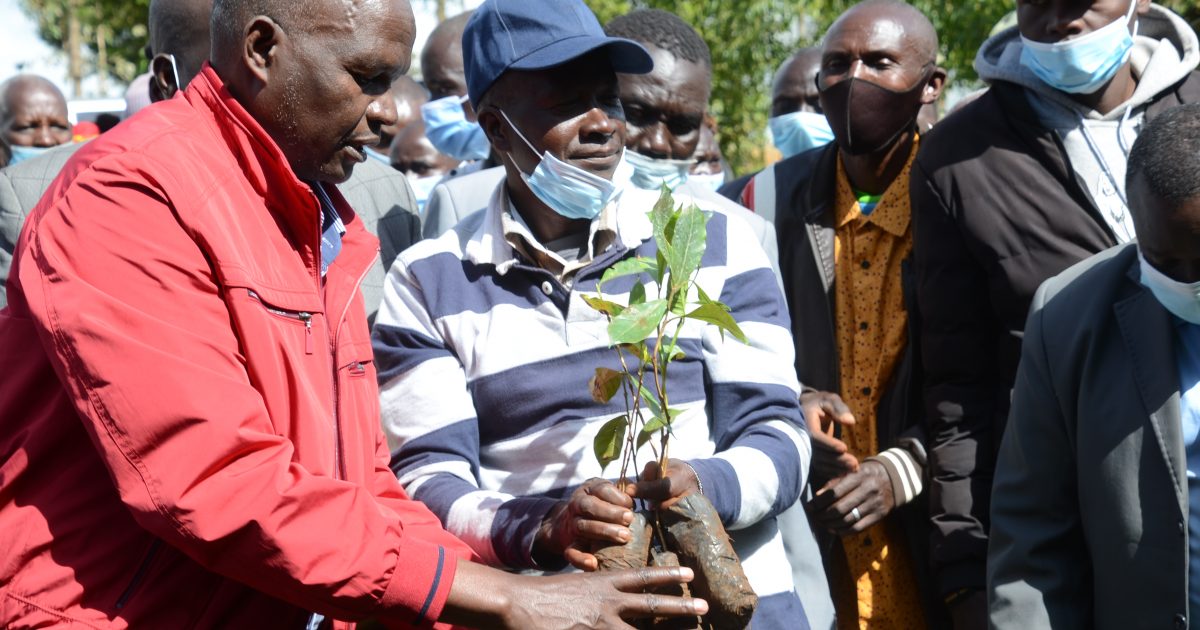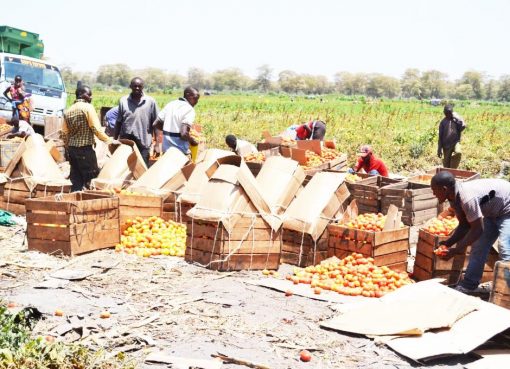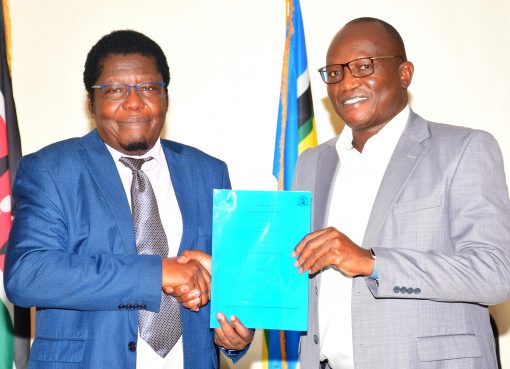Farmers in Baringo County are intensifying their venture in coffee farming after getting motivated by the commissioning of the first ever coffee mill in the region.

The Sh100 million mill which started running from June this year was acquired through collaboration with Korean Investor Rev Cha Bo Yong following signing of a memorandum of understanding with the county government.
The factory which has a milling capacity of 1.2 tons per hour has now been termed by farmers as a game changer for it will reduce the cost of seeking milling services in far flung areas like Eldoret and Ruiru.
One coffee farmer, Willy Cherogony, 60, during an interview with KNA at his farm in Kapropita location, Baringo Central sub-county, said the crop has greatly supported his family of eight since 2002 when he started the venture.
Cherogony explained that his love for coffee is inseparable and only death can separate him from engaging in the farming which he always takes his time to woo local farmers to turn to the cash crop termed by veterans in the sector as ‘black gold.’
“I planted 400 Ruiru 11 coffee seedlings over 20 years ago due to my undying passion for coffee and it has paid me handsomely. The good part of the crop is that it doesn’t require much input and for now I have used its proceeds to fund my children’s education all through to university,” he said.
The farmer revealed that he has five hectares of coffee plantation in Mochongoi and Kapcherebet areas which has earned him reputation of being among the county’s highest earning farmers for he gets over Sh 400, 000 annually from the coffee being auctioned at Nairobi Coffee Exchange (NCE) and Korean market.
“Unlike other crops, coffee prices keep fluctuating depending on NCE; for instance, last month a kilogramme went for around Sh 800 for top grade, which is good money,” he quipped.

At the farm and seedbeds, his two sons who are unemployed graduates are always busy weeding happily after learning the merits of coffee farming which has enabled their father raise their fees through coffee sales.
“The county government has intensified marketing by selling our coffee directly to a Korean company whose prices are quite attractive compared to what is offered in NEC. I sell my coffee beans direct to the mill, unlike other small scale farmers who are mandated to first form a society to enable them to use it as an avenue of selling theirs to millers,” said Cherogony.
Before the commissioning of Baringo Cha Coffee Mill at Katimok in Baringo North, Cherogony says he would sell his coffee to a miller in Eldoret which to him was challenging in terms of transportation and at times he is shortchanged during grading.
“I used to take my coffee to the Eldoret mill but unfortunately brokers would tamper with the grading system by giving me a grade that doesn’t reflect on the type of coffee beans I delivered to them,” he lamented.
Cherogony who doubles up as a coffee extension officer in the county says he is able to raise and sell his own quality seedlings. He encourages aspiring farmers to seek advice from any coffee expert before planting so that an assessment is done to determine the suitability of the soil and even get to be advised on issues like spacing between the crops and the favourable type of coffee.
Another farmer, Elijah Chepngeno, from Eldama Ravine, 60, said that he embraced coffee growing four years ago after getting motivated by his neighbour who together with his family are living a posh lifestyle and always smile all the way to the bank thanks to coffee sales.
Chepngeno has half an acre of land under coffee which earns him Sh 70, 000 annually. In the same land, he previously used to plant maize but the cost of production surpassed the income accruing from the enterprise but this is not the case with coffee which he noted is not labour intensive.
The small scale farmer, a beneficiary of subsidised coffee seedlings provided by the county government through a programme that has seen over 400,000 seedlings distributed, noted that coffee has transformed his family living standard.
As a farmer who sells his coffee through a cooperative society, he said that like their counterparts in other parts of the country like Central they face challenges like fluctuation market prices, lack of access to affordable farm inputs such as fertilizers and chemicals, a problem that has seen some producers quit while others protest by cutting down the coffee bushes.
County Director of Agriculture Vincent Abuje said that coffee is one of the most targeted cash crops by the county government which does well in areas along the Tugen Hills like Poi, Talai, parts of Eldama Ravine, Seretunin, Sirwa, Kasisit, Tirimionin, Kituro, Ossen and Kipsaraman which have favourable climatic conditions, altitude and soil.

Abuje explained that since the variety grown mostly is Arabica coffee which include SLP 7/28, Ruiru 11 and Batian, the county government has made deliberate efforts to increase production by supplying farmers with over 100, 000 seedlings and supported societies with 600 kilos of certified seeds to raise seedlings for supply to its members.
“The cash crop mostly grown in rural areas is considered organic by default because farmers still use compost manure instead of using industry manufactured fertilizers which are not organic. This gives our coffee a competitive edge,” he said the officer in his Kabarnet office.
To alleviate the situation, he stated, the county government has gone out of its way to source direct markets in countries like South Korea besides intensifying capacity building of extension service providers to realize increased production.
“On coffee processing, three factories, Kabimoi, Kapkawa and Moinget have been refurbished and more are targeted for renovation to ensure Baringo retains its fame of producing high quality commercial coffee,” he stated.
The extension officer called on coffee growers who have abandoned their tree bushes to go back to the farm as the current supply of coffee parchment will not be enough to operationalise the three modern milling machines in the county.
Commissioning the ultra-modern coffee mill at Katimok with two lines that can mill both parchment and mbuni beans, Governor Stanley Kiptis noted that the machine that has a lab, warehouse and information centre is expected to boost farmers’ income immensely through value addition.
He reiterated that his government has developed a concrete road map for the revival of the coffee sub-sector which local farmers had abandoned due to poor market prices.
Kiptis pointed out that part of reasons for the revitalisation of the lucrative cash crop is to improve the livelihoods of farmers as well as to sustain coffee processing in a region that has a potential of 1,820 tonnes per year.
“In 2020 alone we have supplied 30,000 coffee seedlings to our farmers in a bid to increase acreage of land under coffee from 700 hectares in 2017 to 3,000 hectares by the year 2022,” he said.
Principal Secretary for Wildlife Prof. Fred Segor said the Baringo mill will improve Kenya’s ability to process local produce for export which currently stands at 16 per cent.
Segor encouraged county governments to put more money in the agriculture sector for it will directly benefit farmers through direct incomes besides improving local economies through foreign exchange earnings.
The Head of Coffee Directorate in Food and Agriculture Authority Isabella Nkonge who attended the launching ceremony affirmed that it will be meaningless for a huge state-of-the art factory to be commissioned and later turn out to be a white elephant just because of inadequate raw material.
By Jebichii Chepkwony





